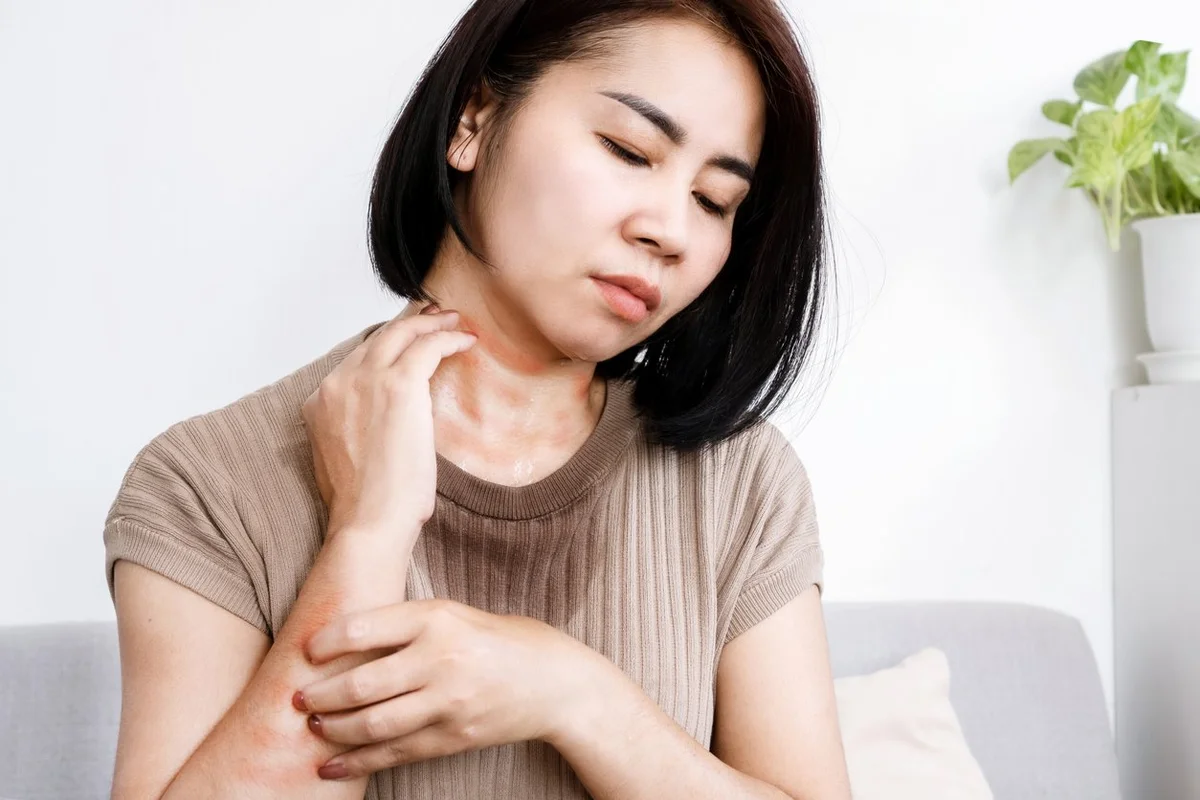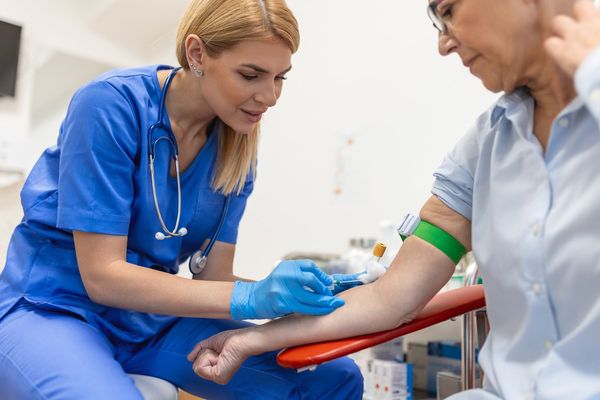Q:
I am a perimenopausal woman who has been experiencing rash-like symptoms prior to my periods for several months now. This month the rash was not only around my groin/pelvic/rectum area it also covered my neck and was red, blotchy and itchy. Are these rashes common to perimenopause?
A:
Actually, there is no evidence that rashes like what you're describing are linked to menopause or hormones. However, estrogen does play a major role in the overall condition of your skin, and it wouldn't be unusual to notice changes as your body's production of the hormone fluctuates.
For instance, we know that postmenopausal women using estrogen therapy tend to have skin that is thicker and moister than postmenopausal women who don't supplement with estrogen, and that loss of estrogen leads to drier skin. This dryness could make your skin more susceptible to irritation from your clothing, particularly your underwear.
Women's skin also becomes thinner after menopause, leading to an increased risk of skin tearing and bruising, and some of this thinning may be related to estrogen loss. Plus, as any woman knows, your skin begins to loosen and wrinkle as you age. Much of this, however, results from earlier sun exposure and other environmental damage rather than loss of estrogen.
Estrogen also plays a role in wound healing, so lower levels could contribute to excessive irritation. Finally, women are more likely to develop rosacea, a common skin disorder characterized by a bright red rash and scaliness on your face, in their thirties and forties, although rosacea is not related to estrogen.
Obviously, there is no way to diagnose your condition without a thorough medical exam. Your rash could be related to many things, ranging from an allergic reaction to the laundry detergent or bath soap you're using, to hives from stress, to a medical condition. Thus, I strongly recommend that you make an appointment with your primary health care provider or a dermatologist for a thorough medical history and evaluation.
- Menopause and Vaginal Dryness ›
- The Fix for Itchy Scalp ›
- Drying Up in Menopause ›
- Doctors Told Me It Was Just Perimenopause. It Turned Out to Be Uterine Fibroids. ›
- Dry Skin and Menopause - HealthyWomen ›







